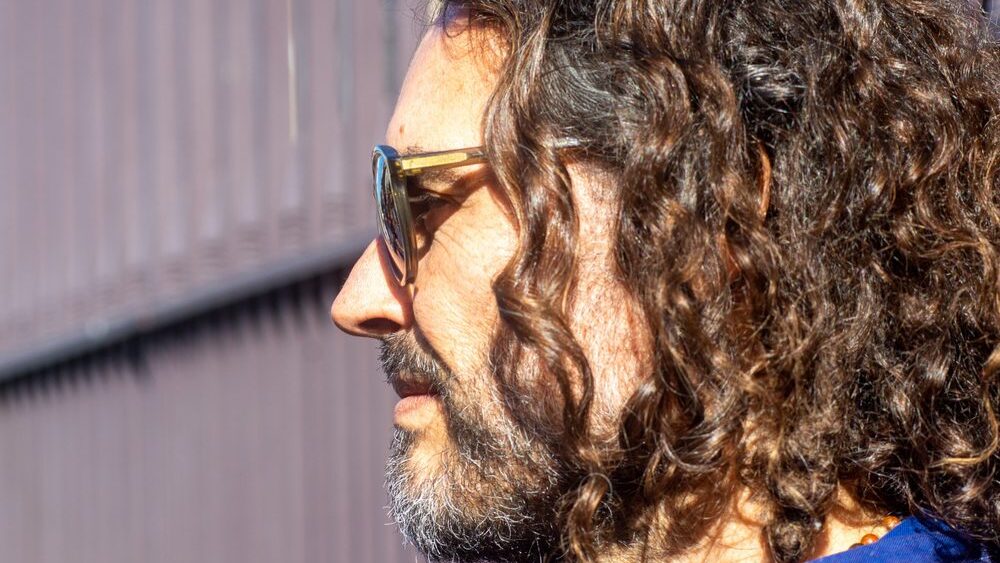
Russell Brand
Photo: Philip Robinson 1 / Shutterstock.com
Following recent rape and sexual abuse allegations made on UK broadcaster Channel 4 programme Dispatches, comedian, commentator, and COVID-19 pandemic sceptic Russell Brand has had his revenue cut off by social media giant YouTube and his content removed by the BBC.
The allegations against Brand were made by several women, most of whom remained anonymous and were part of a multi-year investigation by The Times of London and the Sunday Times newspapers working with Channel 4 and Dispatches.
The BBC reported this week that YouTube had removed monetisation from Brand’s channels on the platform, citing a policy regarding content creator behaviour outside of YouTube.
“If a creator’s off-platform behaviour harms our users, employees or ecosystem, we take action,” a YouTube spokesman said on Tuesday, September 19th.
Cutting his revenue off, also known as demonetisation, will affect all of Brand’s YouTube channels, with Sara McCorquodale, author and chief executive of social media analysis agency CORQ claiming that Brand made around £2-4,000 per video.
“He was probably making more revenue from YouTube than any other platform,” McCorquodale claimed, although she did not cite revenue figures for other platforms Brand appears, such as the video hosting site Rumble, where he has 1.4 million subscribers, or his podcasts which appear on iTunes and Spotify.
“Everything existed to drive people towards his YouTube channel so that probably was a significant revenue stream that has obviously now been paused,” McCorquodale said.
The BBC have also removed content involving Brand from their iPlayer video platform and Sounds radio service in the wake of the rape allegations.
“The BBC does not ban or remove content when it is a matter of public record, unless we have justification for doing so. There is limited content featuring Russell Brand on iPlayer and Sounds. We’ve reviewed that content and made a considered decision to remove some of it, having assessed that it now falls below public expectations,” a spokesman for the broadcaster said.
While the London Metropolitan Police claimed to have received a report this week of a sexual assault that took place in 2003, so far no official police investigation has been launched against Brand and no prosecution has been announced by the Crown Prosecution Service (CPS).
The current lack of any formal charges against Brand, much less a criminal conviction, has fueled speculation on social media that the Dispatches programme was coordinated due to Brand’s outspoken criticisms of the pharmaceutical industry during the COVID-19 pandemic and his scepticism of COVID-19 vaccines.
Elon Musk, the world’s richest man and owner of X, formerly known as Twitter, replied to a video of Brand denying the allegations saying, “Of course. They don’t like competition.”
While Brand denied the allegations, he acknowledged that during his time working for mainstream media companies and making films he was promiscuous but claimed that every relationship he had during that period had been consensual.
Brand’s case is not unique in that others have been similarly financially punished over allegations, despite a lack of any criminal prosecution or conviction against them.
Last year, Sebastian Morello, writing for The European Conservative, highlighted the issue of the “de-banking” process in which banks cancel the accounts of customers, often over political activity or views.
Morello noted that Russian expats who may have fled their country have had their bank accounts frozen along with those who supported the Freedom Convoy protests in Canada in early 2022 after Prime Minister Justin Trudeau invoked the Emergencies Act for the first time in Canadian history.
Earlier this week in Brussels, Morello and others took part in a European Conservative event entitled “‘Progress’ or Power: Decoding the Digital Future” in which debanking and the potential threats connected to a digitized currency were also discussed.
Even prominent politicians have been subjected to debanking, including Brexit leader and current GB News presenter Nigel Farage, whose bank account at private bank Coutts, owned by banking giant NatWest, was cancelled earlier this year in June.
Farage later revealed that he had obtained a 40-page report from the bank which contradicted Coutt’s prior claims that the closure of Farage’s account had been a “commercial decision.”
In the document, Farage is referred to as “xenophobic and racist” and noted his role in the Brexit referendum and his relationship with former U.S. President Donald J. Trump.
The incident, which also saw the BBC publish a false report on the reason for Farage’s account closure, ultimately led to the resignation of Dame Alison Rose, the head of NatWest at the time.
